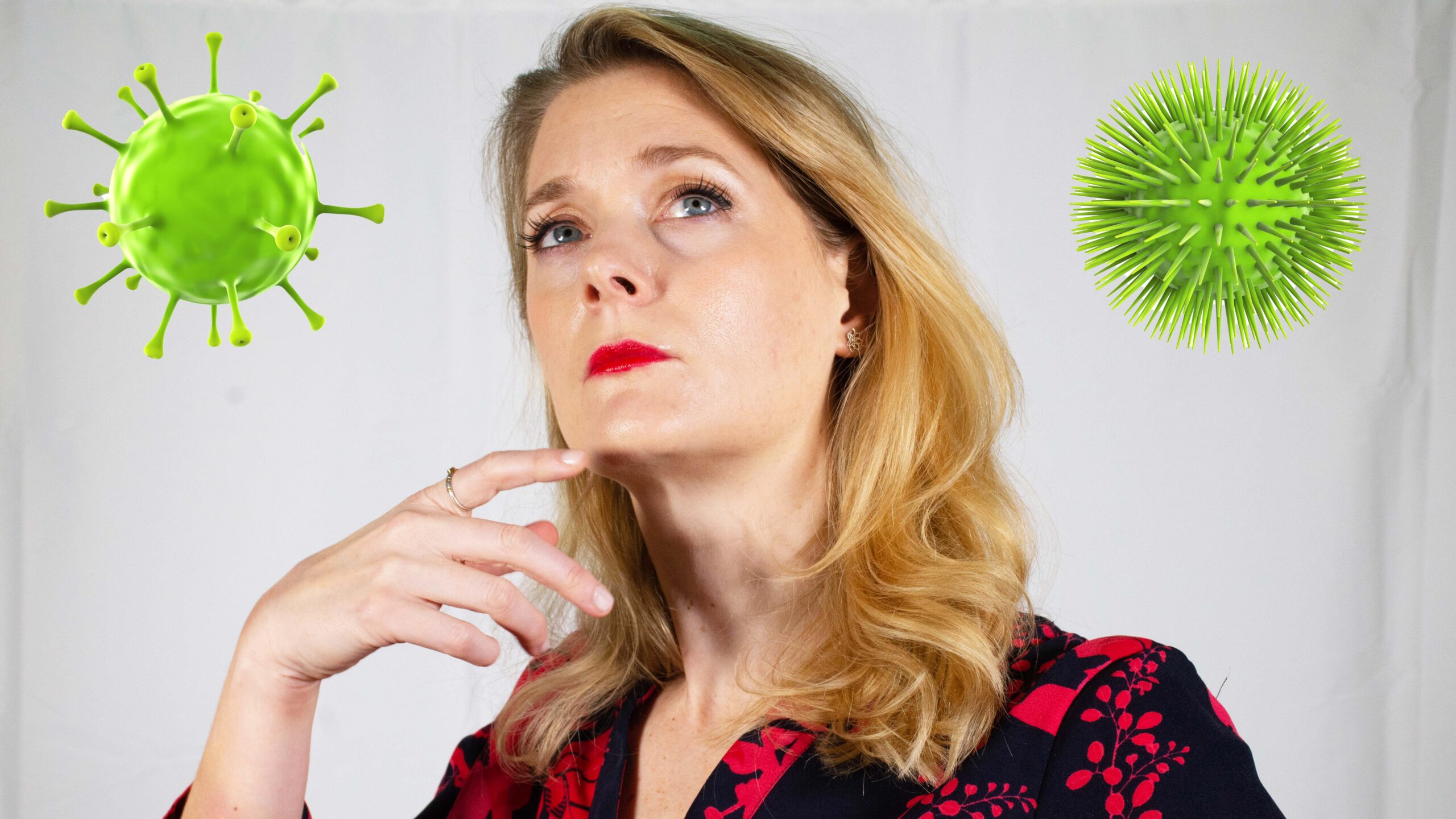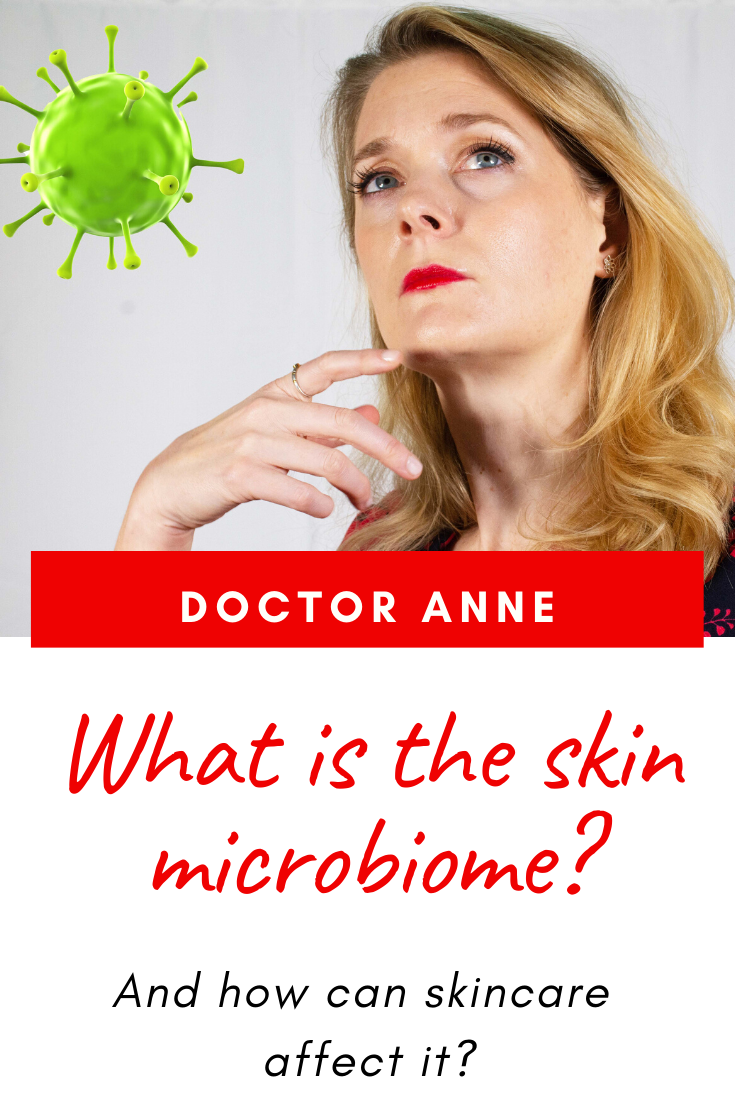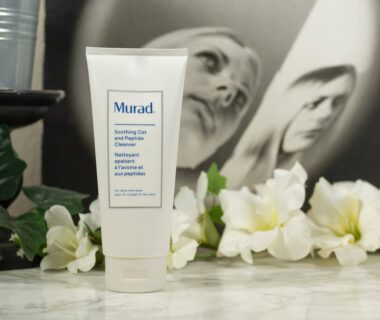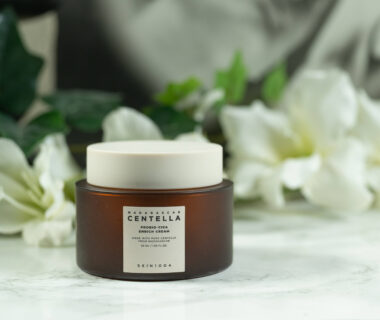I get a lot of questions about pre-, pro- or postbiotic skincare, but to answer them sufficiently, we first need to take a look at what they are actually targeting: The skin microbiome.

So in todays installment of the #AskDoctorAnne series we will take a closer look at the millions of cells living on and with us, discover how they benefit our skin, what we know about them that could be transferred into skincare products and what we can do to make our very own microbiome happy!
The whole *biotic skincare will be discussed soon, promised!
What is the microbiome?
The mikrobiom is the sum of all the microorganisms that live on the human body, including bacteria, fungi and virus, even mites like the Demodex mite that dwell on our skin.
Against common misconception the skin is NOT the largest organ we have. Our largest organ is the gut with around 40 m2 of surface area from lips to anus. The skin is however the second largest, with over 2 m2 of surface area, which leaves it with a lot of area to be covered in bacteria.
The largest part of the bodys microbiome is situated in the gut, and there have been a few studies that have established a link between diseases (even skin diseases) and changes in the gut microbiome.
Opposed to parasites, which feed of us without a benefit (and in some cases even a disadvantage for us, the host), the skins microbiome are symbionts, which means they benefit from us, the host, as we benefit from them, and most likely we have evolved together over the course of the last centuries.
What is the skin microbiome and what does it do?
The skin microbiome is the microbiome situated on the skin, and that includes not only the skins surface, but the hair follicles and sebaceous glands, which are rich in bacteria, making the skins microbiome larger than initially assumed.
Each persons microbiome is different, not even identical twins have the same mixture of bacteria on their skin.
The skin microbiome hinders „bad bacteria“ or pathogens from growing on the skin, it plays a role in regulating the skins pH and helps in preventing Transepidermal Water Loss (TEWL). In return the microbiom feeds of sebum, dead skin cells and skin lipids and can be reduced by overcleansing the skin, especially when using antimicrobial face washes, as those don’t tend to differentiate between „good“ and „bad“ bacteria and reduce microbial diversity.
Actually, it is still unclear, which the „good“ bacteria and the „bad“ bacteria are. We do of course know some pathogens that are responsible for skin infections (think proprionibacterium acnes), but apart from that we can’t say for sure how much of each of the many different microorganisms are the ideal mixture. With the microbiom different in every individual, that is hard to judge, but some changes have over the last years been linked to certain skin diseases like atopic dermatitis in newborns.
Does the microbiom always stay the same?
No.
You start building your personal microbiome in utero and through the passage through the birth channel, so it is heavily influenced by the maternal vaginal microflora.
Starting from the newborn stage though, your microbiom is constantly changing. Even at the present moment you actually have several different skin microbiomes, depending on the areas of your body, as the microbiom on the face (oily body part) is different from the one in the arm pits, in the groins (moist body part) or on the legs (dry body part).
Our skins microbiom changes as we age, it is affected by the climate we live in, our nutrition and, very important, by the people we have skin contact with. Sharing the bed with another person changes your microbiome, just as every cuddle affects the microbiom of your children.
What has research shown about the skins microbiome that can be transferred to skincare?
As you can probably guess from what I said before: Not much.
The only thing we know is that there seems to be a connection between changes in the skins microbiome and certain skin issues like eczema, acne and atopic dermatitis, but which changes exactly these are is still unclear.
It is however an area that has a lot of research going on at the moment, so we can expect to learn more in the time coming.
How can I strengthen or restore my skins microbiom?
I will go into pre, pro and postbiotics in a different video, as they are what skincare brands want you to invest in (make sure to subscribe so you don’t miss out). Today I want to focus on general measures:
Do not overcleanse your skin!
Every cleanse strips the skin not only from the good microroganisms, which take a few hours to regenerate themself, but also from skin lipids that the microbiom needs to feed off.
But do clean your hands regularly.
We touch our face subconsciously numerous times a day, and with each touch we transfer foreign bacteria from our hands to our faces, which then competes with the bacteria already living there. And seeing that we won’t be able to stop touching or faces, reducing the amount of bacteria transferred is essential.
Lead a healthy lifestyle
Sleep well, exercise and don’t overdo it with alcohol and smoking. Everything that strengthens your overall health will strengthen your microbiome as well.
Sounds less exciting as pre, pro and postbiotic skincare? I know, but you need to get the basics right before you can start playing with products!
Any questions I didn’t answer? Leave them in the comments below.



